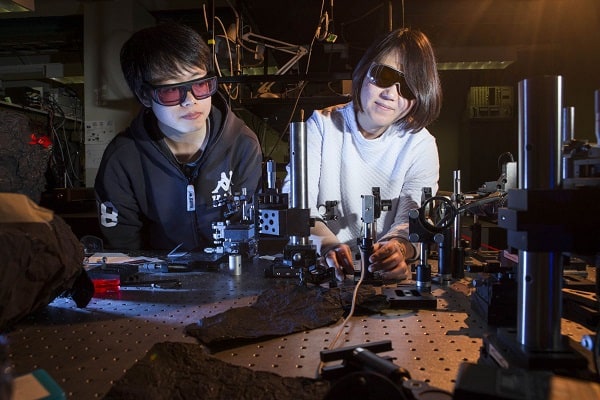ANU invention could help turbo-charge internet speeds
Australian scientists have invented a new ultra-thin device that can turn invisible light into the visible and change the colour of light, with the potential to be used to help turbo-charge internet speeds around the world.
A change in light’s colour alters its frequency, which is a process in optical technologies which include next-generation telecommunications.
ADVERTISEMENT
The new device could be developed in partnership with industry partners to enhance the capacity and speed of telecommunication channels that are vital for delivering high-speed internet.
Professor Wieslaw Krolikowski, one of the lead researchers from The Australian National University (ANU), says the device – which is a new type of nonlinear photonic crystal that is as thin as a human hair – was a major advancement in the field.
“Our device can produce different types of light and in different colours, simply by changing the angle that we shine a laser beam into the device, and it is reusable for different purposes,” says Wieslaw.
“This is the first time these feats have been achieved by scientists.
“Scientists had previously been restricted to one- or two-dimensional structures in nonlinear photonic crystals, which had limited scope to change light, but we found an innovative way to modify them in three dimensions to unlock exciting new capabilities.”
Co-researcher Dr Yan Sheng from ANU says the research team conducted a number of experiments by using ultra short laser pulses to change the internal structure of a nonlinear crystal, which was able to convert an invisible light beam into visible light.
“We provide the first proof that it is possible to engineer nonlinear crystals in three dimensions for the purpose of light conversion,” says Yan.
The research team aims to make millimetre-sized devices that will be able to convert light much more efficiently.
“We will also apply our technique to more popular and less expensive materials, making it more attractive to potential commercial partners,” Yan says.
-
ADVERTISEMENT
-
ADVERTISEMENT


